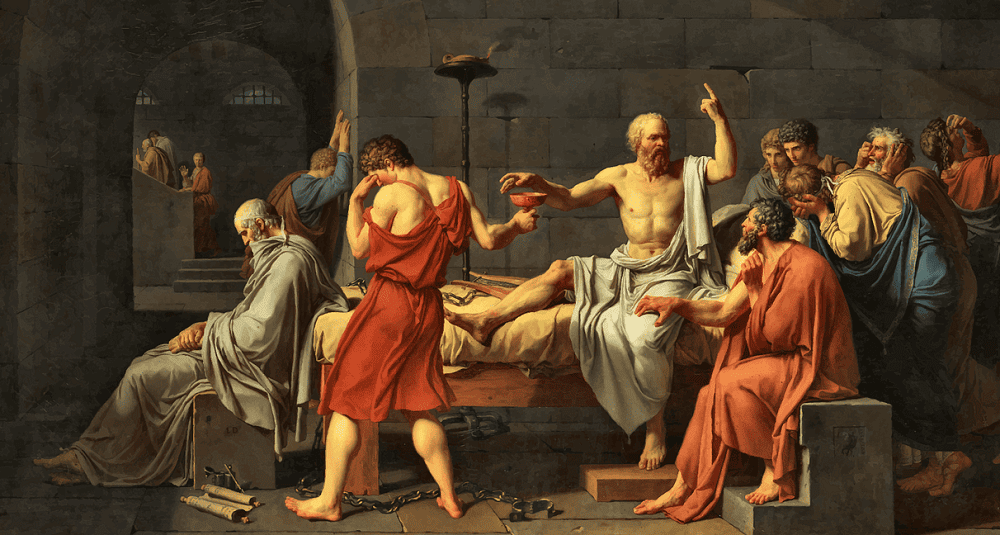How did Socrates die?
Last Updated:
Socrates, one of the greatest philosophers of ancient Greece, died in 399 BC, condemned by an Athenian court to drink the powerful poison hemlock. His execution is one of the most significant events in the history of philosophy, as it illustrates his commitment to its principles, notably the search for truth and acceptance of the laws of the city.
Socrates lived in Athens at a time of political turmoil. He left no one indifferent by questioning established beliefs and practicing a method of questioning aimed at exposing the contradictions in the discourse of the powerful.
In 399 BC, he was accused of two main crimes:
- Impiety: He rejected the city’s traditional gods and introduced new ones;
- Corruption of youth: by inciting young Athenians to question authority and tradition, he is said to have sown disorder in society.
His opponents, including influential figures in the Athenian democratic regime, see him as a danger. They wanted to silence him, and used the accusations as a pretext to eliminate him legally.
Socrates’ trial took place before 500 Athenian citizens, according to the democratic system of the time. During his defense, transcribed by Plato in the Apology of Socrates, the philosopher refuses to beg for his life and continues to assert his ideas. He considers truth and justice to be superior to his own existence.
The verdict comes down and Socrates is found guilty by a narrow majority. During the sentencing phase, he could have proposed exile or a fine, but he chooses not to deny his convictions. Ironically, he even suggests that he should be rewarded rather than punished. This exasperates his judges, and the sentence is confirmed, the death penalty.
Socrates is imprisoned for several weeks before his execution. His disciples, notably Crito, try to persuade him to escape, but he refuses, arguing that he must respect the laws of Athens, even if they are unjust.
On the day of his execution, Socrates calmly drinks hemlock, a poison extracted from a poisonous plant. According to Plato’s Phaedo, he died surrounded by his friends, discussing the nature of the soul and immortality until his last breath. His body gradually becomes numb, and he passes away without fear or regret.
Socrates’ death marks a turning point in the history of philosophy. His refusal to flee and his acceptance of death make him a symbol of intellectual integrity and resistance in the face of injustice. Through the writings of Plato and Xenophon, his teaching endures and profoundly influences Western thought, notably through ethics, the Socratic method and the search for truth through dialogue. So, while his body may have disappeared, the spirit of Socrates continues to inspire generations down the centuries.
You may also be interested in
history

How did Socrates die?
Answer
Socrates died in 399 BC after drinking the deadly poison hemlock. Condemned by Athens for impiety and corruption of youth, he accepted his fate.